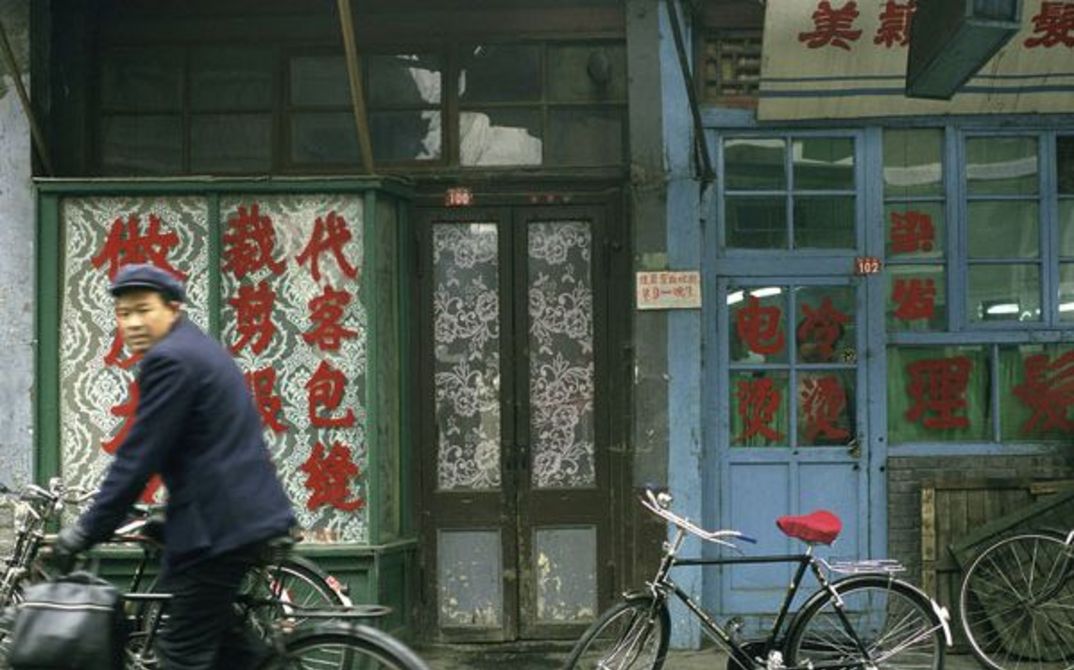D'EST (From the East, Chantal Akerman, F 1993, 5.1.) A journey from eastern Germany to Moscow that begins in summer and ends in deepest winter. Static shots alternate with tracking shots of landscapes, people and faces. A stream of images reproduces the impressions of a subjective journey, waiting rooms, train stations, street-scapes, dance halls, kitchens, landscapes, the potato harvest, faces - the places remain unknown, there is no structuring commentary, hardly a word, but there is an order of things and gazes and an echo of noises: here the sound of the wind, there the drone of cars, music.
CHINA. DIE KÜNSTE –DER ALLTAG (China. The Arts - The People. Ulrike Ottinger, FRG 1985, 12.1.) In February and March 1985, Ulrike Ottinger went to Beijing and to the provinces of Sichuan and Yunnan. She visited villages and cities, markets and temples and observed people going about their daily lives. The four-and-a-half hour film is based on her precise observations and does not resort to commentary. Long takes, which follow the dramaturgy of real scenes, and original sound receive a particular meaning in the context of this film. "In her first documentary about China, daily life and the arts there, Ulrike Ottinger already revealed her air of the free roving traveller, which is characteristic of all her films." (Gertrud Koch)
EXIL SHANGHAI (Exile Shanghai, Ulrike Ottinger, Germany/Israel 1997, 19.1.) is about German, Austrian and Russian Jews whose lives cross in their shared refuge of Shanghai. Narratives, photos, documentary footage and new images from the largest and most contradictory metropolis in the Far East coalesce in such a way as to allow this story of historic exile to gain a contemporary relevance. Ulrike Ottinger: "I wanted to find counterparts and images in today's Shanghai for the stories people told me about that time, in a city that is going through an incredible upheaval. Shanghai has always been a place where the old and new China intersect, as well as one where China encounters foreign countries."
ELSEWHERE (Nikolaus Geyrhalter, Austria 2002, 26.1.) The eponymous "elsewhere" spans 12 stations on a journey around the world that Nikolaus Geyrhalter and his film crew undertook in 2000. In Niger, Finland, Namibia, West Papua, Greenland, Australia, northern India, Siberia, Sardinia, Canada and Micronesia, they found people leading their lives in autarky and observed them going about their duties in the desert, the ice, the jungle or the mountains. In the 12 20-minute-long episodes, the impact of modernity on tradition becomes visible - children play Nintendo in the rainforest and Inuits buy fish at the supermarket. These are visually stunning tableaux of different types of civilization at the beginning of the 21st century. (mg/al)
